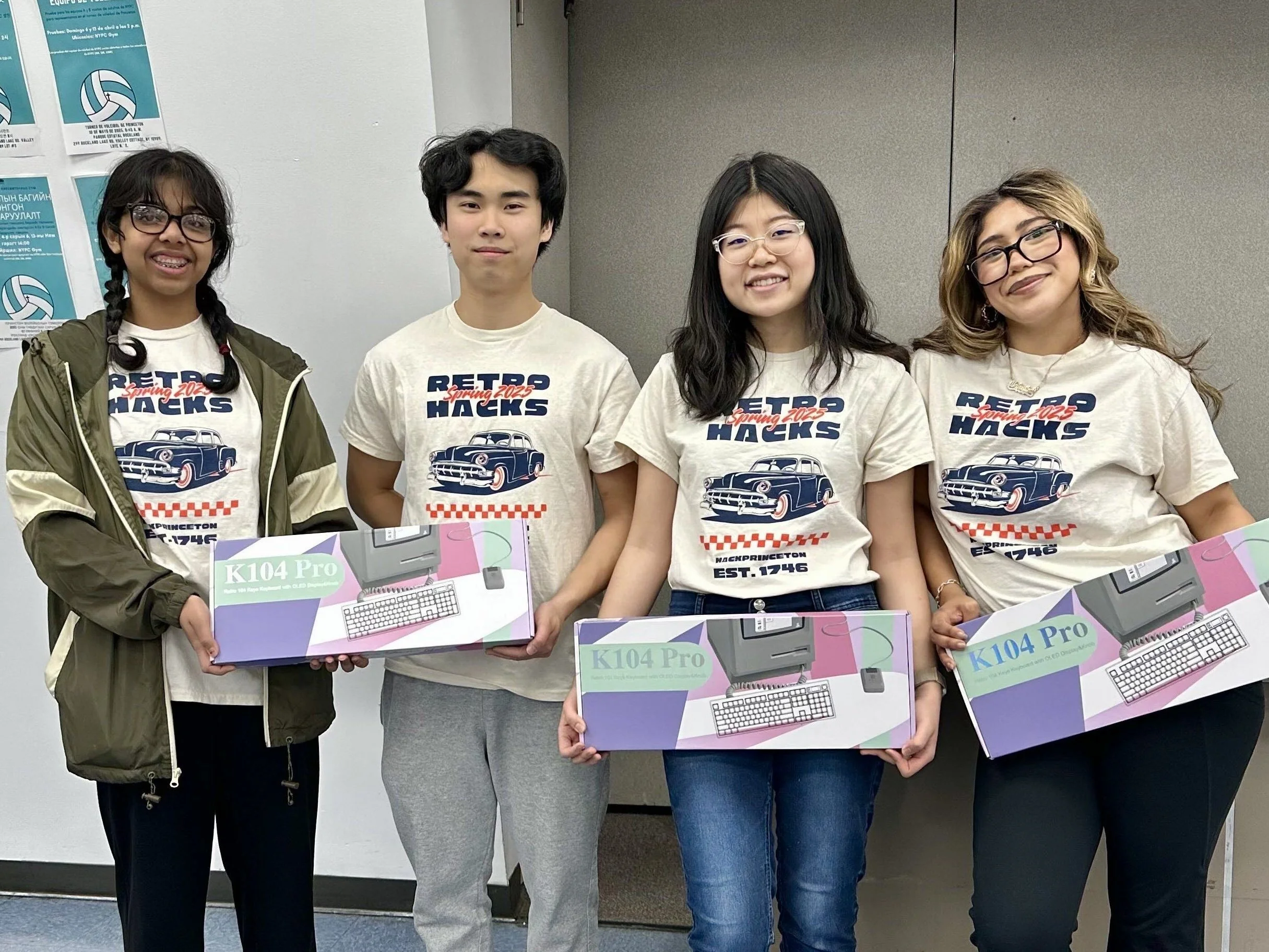HackPrinceton
From left to right, Post-Op Info team members: Kripamoye Biswas, James Choi, Anna Zhang, and Valentina Quiroga (photo provided by Kripamoye Biswas)
From March 28–30, students from across the country gathered at Princeton University for HackPrinceton. The annual event brought together bright minds and bold ideas to tackle some of today’s most pressing issues with technology. Among the standout projects this year was Post-Op Info, which took home the Patient Safety Technology Challenge prize for its innovation in post-surgical care. Each team member was awarded a keyboard.
The first night of the hackathon featured a “Patient Safety 101” workshop led by Dr. Mooyeon Oh-Park, the Chief Medical Officer, Senior Vice President at Burke Rehabilitation Hospital, and Professor in the Department of Rehabilitation Medicine and Department of Neurology at Albert Einstein College of Medicine, Montefiore Health System, New York. The team said they found Dr. Oh-Park’s story inspiring. One team member said, “Her father’s preventable death—not from a lack of access, but from a lack of care, showed us how easily post-discharge complications can be missed. That’s what we set out to change.”
For the Post-Op Info team, the motivation behind their project ran deep. One team member shared how their passion for patient safety and healthcare innovation had been shaped over time, beginning with a powerful YouTube video featuring a neurosurgeon who stressed that prevention—not just treatment—should be the focus of medicine. “That perspective really resonated with me,” said Kripamoye Biswas, a Post-Op Info team member. Biswas emphasized, “a truly effective healthcare system should prioritize people’s well-being from the start, and that begins with education, awareness, and a deep understanding of the current issues we face.”
The loss of a loved one also made the issue personal for Biswas. “My grandmother passed away following a spinal surgery, and to this day, we still don’t fully understand how—or even exactly when—she died. We were told it was a safe, routine surgery. But only after she passed did we learn how risky it actually was, especially for someone her age.” Biswas explained how that experience ignited a drive to improve transparency and safety in healthcare, especially for elderly patients and communities of color who often receive inadequate information or care.
The Post-Op Info team ultimately created an app focused on helping patients during recovery from Coronary Artery Bypass Grafting (CABG) surgery. The tool offers personalized daily check-ins, reminders for medications and instructions, and alerts for potential post-operative complications. It also allows caregivers to input and monitor recovery data, ensuring patients don’t have to manage everything on their own.
Despite some challenges they faced along the way, the team focused on creating a “user-friendly, scalable foundation that could evolve with time” and fills a critical gap in patient safety: the transition from hospital to home. By keeping both patients and caregivers informed and connected, Post-Op Info supports safer healing and reduces the risk of preventable tragedies.
The team plans to continue developing and improving their app. Biswas added, “we’re especially excited to explore features that make the app even more accessible and personalized.”
Outside of the hackathon, Biswas said she has begun research in biomedical informatics, exploring how hospitals can better integrate technology to improve patient outcomes and prevent safety lapses before they happen. “This work has deepened my motivation to keep refining Post-Op Info and advocate for solutions that bridge the gap between patients, caregivers, and healthcare systems.”
For Team Post-Op Info, innovation in consumer-focused healthcare technology isn’t just about functionality—it’s about dignity, safety, and closing gaps that too often cost lives.

